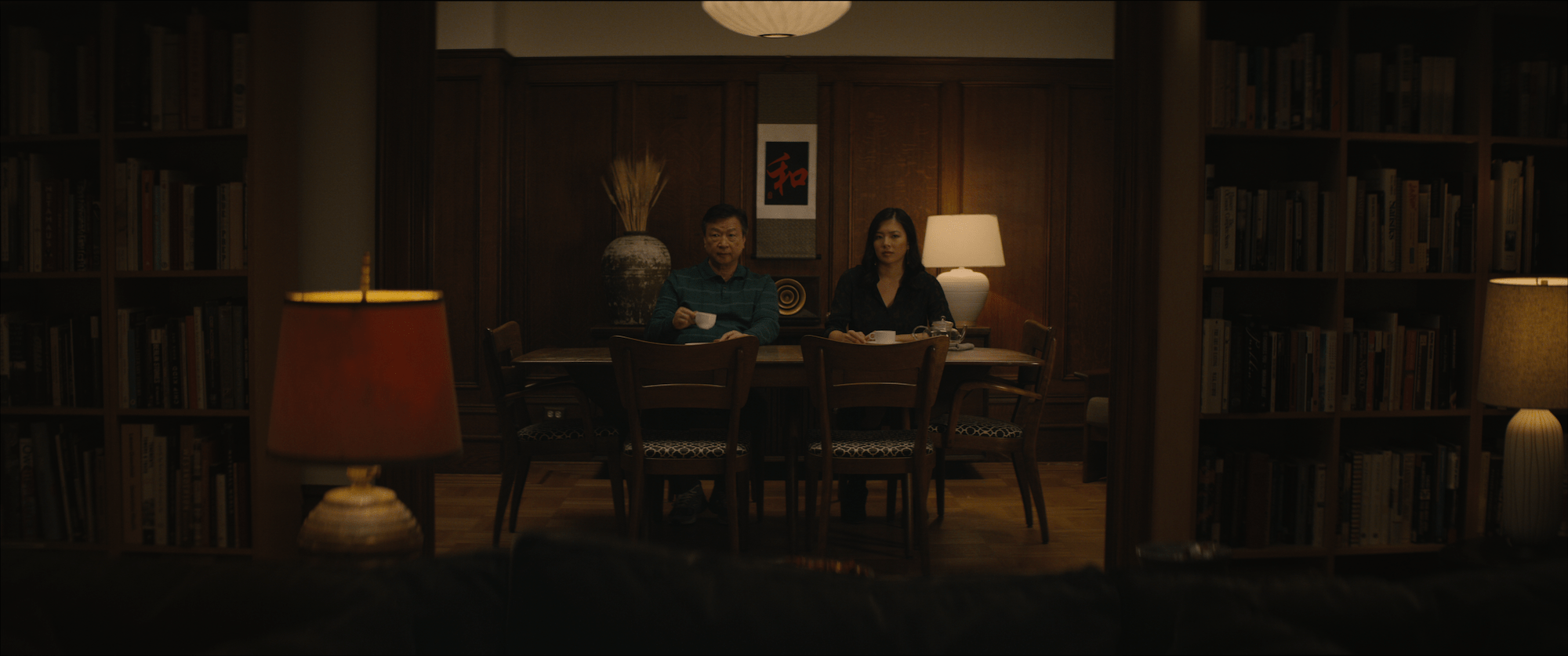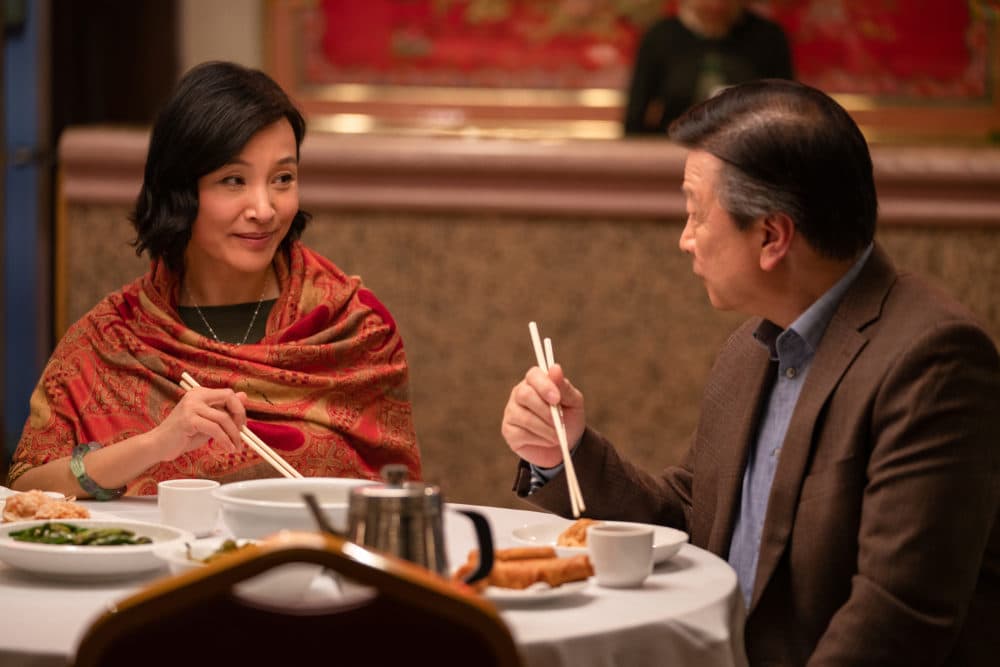Advertisement
Review
A Multigenerational Saga Spanning Decades And Continents, Netflix’s 'Tigertail' Is Not Long Enough

Netflix’s “Tigertail” is a heartfelt drama about a family of Taiwanese immigrants living in New York City, written, produced and directed by Alan Yang, who created the streaming service’s Emmy-winning sitcom “Master of None.” (It should by no means be confused with Netflix’s trashy true-crime miniseries “Tiger King: Murder, Mayhem and Madness,” about which the president of the United States promised at a press conference to look into a pardon for one of its subjects because apparently he’s got nothing more important to do right now.) The film is obviously a labor of love for Yang, who based the script on the lives of his relatives, going so far as to shoot scenes in the same sugar factory where his father and grandmother worked in Taiwan half a century ago.
It’s a sprawling, multigenerational saga spanning several decades across different continents. “Tigertail” is also only 91 minutes long, so most of the time it feels like a trailer for itself. There’s no shortage of interesting scenarios and situations here, yet none of them are allowed to dramatically develop past the length of a short scene or two before we’ve packed up and moved on to another time period. It’s in many ways a well-made and (mostly) well-acted film that’s nonetheless impossible to engage with because it never settles down for long enough to let us get involved.
The wonderful Tzi Ma (such a heartbreaker as Awkwafina’s aloof father in last year’s “The Farewell”) stars as Pun-Ji, the brusque and distant patriarch who emigrated from Taiwan to America after an arranged marriage back in the 1970s, working his fingers to the bone in grubby NYC grocery stores through the years to provide what turned out to be quite a comfortable life for his family. But as we learn during the film’s overlapping flashbacks, there was a forbidden love left behind in his old village — the drop-dead gorgeous daughter (Yo-Hsing Fang) of a wealthy family for whom lowly factory worker Pun-Ji was hardly an acceptable suitor.

Yang shoots Pun-Ji’s memories in the swoony, color-saturated fashion of period Wong Kar-Wai reminiscences like “Days of Being Wild” and “In the Mood for Love,” drenched in pop nostalgia dreaminess and cigarette smoke. He’s an excellent student of film history and a pretty good mimic, as already evidenced by “Master of None,” which was occasionally overbearing in its references to world cinema classics. For its contemporary sequences, “Tigertail” samples heavily from the mid-1990s work of Taiwanese greats Edward Yang (no relation) and Ang Lee, emphasizing still frames with the characters arranged in poses that would probably visually correlate to their relationships if only we’d been allowed to get to know them all a little better.
Somewhere around the time Pun-Ji’s daughter was getting divorced during a montage and her husband hadn’t yet spoken a single line of dialogue, I realized Yang had bitten off a lot more here than he could chew. I also started wondering why “Tigertail” had even been conceived as a movie in the first place? This was a new feeling for me because I’m usually saying the exact opposite during hour number seven of buzzy, baggy prestige television shows, wishing they’d just been movies instead. (I’ll confess that I often skip the middle couple episodes of mini-series like “Big Little Lies” because they’re usually just stalling and spinning wheels before ramping up to the big finales. And can any of you please explain why in the name of Ronald McDonald “McMillions” needed to be six hours long?)
A story like “Tigertail” naturally lends itself to the series format — the script is literally episodic — and if we in the audience had been allowed to live with these characters for a little while then maybe there wouldn’t be so many scenes in which the actors are stuck standing around catching us up with awkward exposition about what they’ve been doing for the past few years. (It’s worth noting that the Edward Yang movies to which this film pays homage tend to clock around three or four hours.)
Advertisement

We’re in the middle of a transitional period right now where for most people movies and television are all sort of bleeding together into this one big category called “content” that comes streaming into our homes. This was already underway even before COVID-19 mandated the closing of movie theaters, with Netflix and Amazon Studios staking claim to the adult dramas that franchise-happy movie studios had long ago abandoned, making it possible for films like “Roma” and “The Irishman” to be seen by audiences far beyond the arthouses, even though watching either of those films at home on the small screen is a decidedly sub-optimal proposition.
Some filmmakers have jumped on this blurring of the lines, with Quentin Tarantino re-editing an extended edition of “The Hateful Eight” into a four-episode miniseries for Netflix. (He’s mentioned doing the same for “Once Upon a Time… in Hollywood,” to which I can only say please hurry up, Quentin.) But by the same token, I’m sure Martin Scorsese was offered the chance to break up “The Irishman” into shorter, more easily digestible chapters, and I’m so glad that he didn’t.
I saw “The Irishman” three times in a movie theater and only recently watched it at home, split in half over two nights. So much of the film’s power is cumulative, interrupting it like that devastated the movie’s internal rhythm and severely diminished the weight of time that gives its astonishing final hour such force. Our new era of streaming entertainment certainly presents more options for storytellers, but it also makes it more important that they first choose the right format for their stories.
“Tigertail” is now streaming on Netflix.
